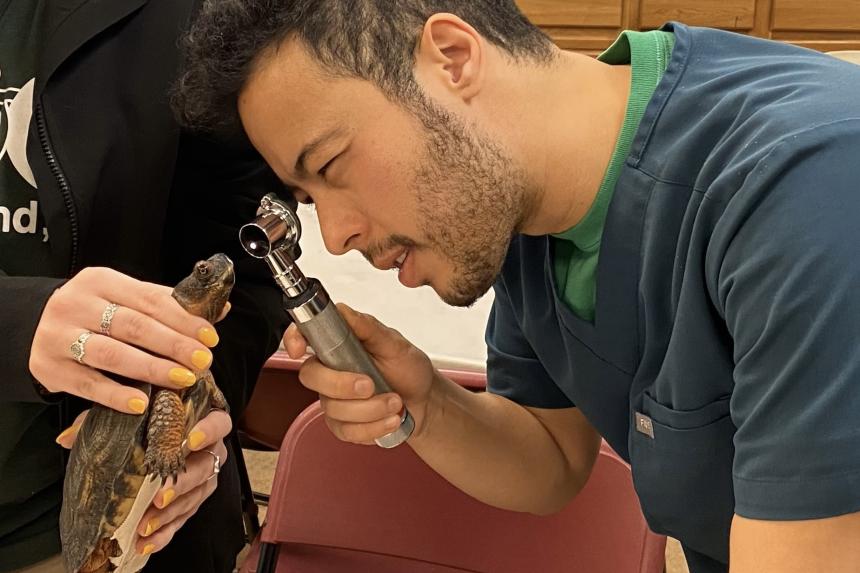In the News

February 21, 2025
News and guidance on avian influenza is scattered across government and state agency websites, and rampant misinformation is spread across the internet. In response, Cornell has launched a comprehensive resource that offers a one-stop clearinghouse for the most current and trustworthy information on bird flu.

February 21, 2025
At Cornell University’s Wildlife Health Lab, scientists work with New York State to test and identify cases of bird flu among animals in Central New York. Interviewed as an expert in the field, Dr. Jennifer Bloodgood speaks on the latest findings.

February 18, 2025
Most pandemics in the past century were sparked by a pathogen jumping from animals to humans. This moment of zoonotic spillover is the focus of a multidisciplinary team of researchers led by Cornell’s Raina Plowright.

February 12, 2025
Recent reports of dozens of dead snow geese have been linked to an outbreak of highly pathogenic avian influenza, otherwise known as bird flu, in New York's Seneca County and neighboring counties. Cornell's Dr. Krysten Schuler provides some advice to reduce people's exposure to the virus.
February 06, 2025
In the Kasongoire Forest of western Uganda, nearly 60 chimpanzees build nests and nap in Ficus trees; playful infants jump energetically from hanging vines, while young males sit in circles to groom each other. When you are deep in the forest observing the chimps, it is easy to forget that this forest is only a fraction of its former size....

Video
February 05, 2025
In this eCornell keynote, Drs. Amandine Gamble and Marie Bouilloud share their recent fieldwork experiences in the Antarctic and sub-Antarctic regions to help illustrate how wildlife health is connected to human activity, even thousands of miles away.

January 30, 2025
Smaller fish species are more nutritious, lower in mercury and less susceptible to overfishing, a Cornell-led research team has found.

News
January 27, 2025
Cornell alumnus Julian Rivera, DVM ’18, has found his niche as the Clinical Veterinarian at the Staten Island Zoo. His path from veterinary school to zoo medicine illustrates both the opportunities and challenges faced by aspiring wildlife veterinarians.

Blog
January 25, 2025
Dr. Steve Osofsky, director of the Cornell K. Lisa Yang Center for Wildlife Health, reflects on a transformative year, and looks forward to leading the way in shaping how the center can help tilt the scales back toward the type of environmental stewardship we ourselves need to survive as a species.

Video
January 24, 2025
Professor Steve Osofsky was invited to give the keynote address, “Birthing Planetary Health: A Midwife’s Tale,” at the Sustainable Cornell Summit 2024.
